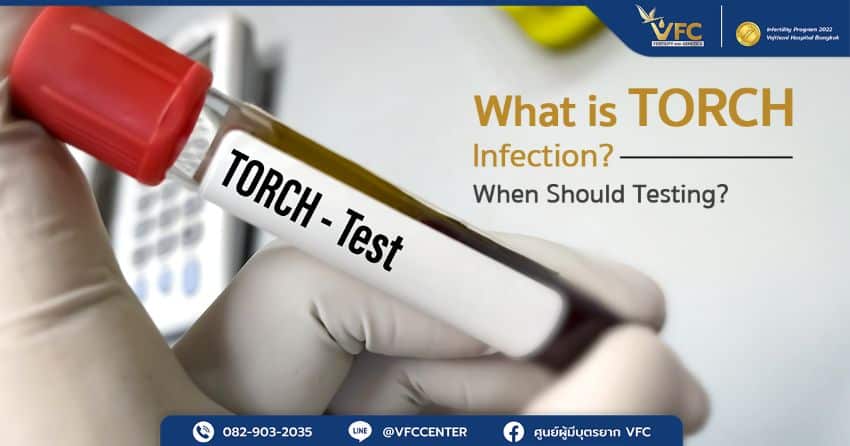
TORCH infection refers to a group of diseases that can be transmitted from mother to fetus during pregnancy, potentially causing serious complications. Despite common belief, TORCH testing is not a routine check for all pregnant women. Doctors recommend it only when abnormalities are found in the fetus via ultrasound or when the mother shows signs of possible infection. Understanding what TORCH disease is and when testing is needed helps ensure safe pregnancy planning and timely care.
Many people mistakenly believe that TORCH testing is a standard screening for all expectant mothers. In reality, TORCH testing is not a routine test for everyone. Doctors consider testing only if abnormalities are detected in the fetus via ultrasound or if the mother exhibits symptoms suggestive of an infection during pregnancy.
This article explains what is TORCH infection, which diseases may require testing, and the scenarios in which doctors recommend it. It also provides essential information for informed discussions with your healthcare provider.
Consult a fertility specialist to increase your chances of a successful pregnancy at VFC Center.
What is TORCH Testing? : TORCH disease explained
TORCH testing is a blood test to detect infections that may affect the developing fetus. This diagnostic tool is used selectively by doctors when medically necessary, rather than as a routine screening test.
TORCH is an acronym for five major groups of infections that can be transmitted from mother to fetus:
TORCH Infection List
- T – Toxoplasmosis: Caused by parasites found in raw meat, contaminated soil, and cat feces.
- O – Other infections: Includes syphilis, hepatitis B virus, and other dangerous pathogens.
- R – Rubella: Also known as German measles, preventable by vaccination.
- C – Cytomegalovirus (CMV): A common virus that is particularly dangerous for the fetus.
- H – Herpes simplex virus: Causes herpes infections.
Impact of TORCH Infections on the Fetus
TORCH infections pose a significant risk to the developing fetus due to an immature immune system, especially if infection occurs in the first trimester when critical organs are forming. Potential impacts include:
- Developmental and neurological abnormalities
- Organ malformations, of the heart, eyes, and ears
- Miscarriage or fetal death
- Growth restrictions and low birth weight
When Do Doctors Recommend TORCH Testing?
Doctors may recommend TORCH testing if there are warning signs or specific risk factors that could affect the mother or fetus.
Warning Signs for Testing
Fetal indicators:
- Abnormal brain findings, e.g., enlarged ventricles
- Abnormal brain calcifications
- Delayed growth
- Other organ anomalies
Maternal indicators:
- Unexplained high fever during pregnancy
- Unexplained red rash
- Swollen lymph nodes
- Abnormal blood test results, such as low platelets or elevated liver enzymes
Risk Factors to Watch
TORCH infections can arise from multiple sources: everyday exposure, sexual behavior, or lack of vaccination.
Exposure risks:
- Contact with rubella or herpes patients during pregnancy
- Handling cat feces, which may transmit toxoplasmosis
Dietary risks:
- Consumption of raw or undercooked meat
- Eating unwashed fruits or vegetables
Sexual risks:
- Multiple sexual partners
- Unprotected sex or a history of sexually transmitted infections
- Lack of immunity to rubella or MMR vaccination
Concerned about TORCH infection risk factors? Consult VFC Center today.
Medical Use of TORCH Testing
TORCH testing is a valuable diagnostic tool when applied according to clinical indication, enabling faster planning and treatment.
As a Diagnostic Tool
- Identifies the cause of detected fetal abnormalities
- Confirms or rules out TORCH infection
- Differentiates from other conditions with similar symptoms
Supports Care Planning
- Enables close monitoring of the fetus
- Prepares a specialist team for delivery
- Determines treatable cases

TORCH Testing: Procedure and Preparation
Understanding the testing process helps patients know what to expect.
Steps and Result Interpretation
- Blood sample collection: TORCH testing starts with a blood draw from the arm, taking 5–10 minutes. Safe for both mother and fetus, no fasting required.
- Laboratory analysis: Blood samples are analyzed for IgM and IgG antibodies for each TORCH pathogen. Results typically take 1–2 weeks. Additional PCR or avidity tests may be required if results are inconclusive.
- Result interpretation: IgM positivity may indicate acute infection; IgG positivity indicates past infection and immunity.
Preparation for Testing
- Physical preparation: No special prep needed; wear clothing that allows easy access to the arm.
- Medical history and documentation: Collect past illnesses, vaccination records (especially MMR), and any recent symptoms such as fever, rash, or exposure to infected individuals.
- Prepare questions for the doctor: Include reasons for testing, interpretation of results, and follow-up plans.
Follow-Up and Next Steps
- Normal results: Pregnancy can proceed normally; continue regular monitoring.
- Abnormal results: Specialist consultation (Maternal-Fetal Medicine) may be recommended, with further tests such as amniocentesis or DNA pathogen testing.
- Long-term monitoring: Includes regular ultrasounds and multidisciplinary planning for delivery and postnatal care.
If you are planning for pregnancy, consult a fertility specialist at VFC Center today.
Important Information for Expectant Mothers
Having accurate information ensures informed decisions about TORCH testing.
When to Consult a Doctor
- Immediate consultation: High fever (>38.5°C) during pregnancy not improving within 24–48 hours
- Other concerning symptoms:
- New red rash on face or body
- Swollen lymph nodes in the neck, jaw, or behind the ears
- Severe cold-like symptoms not improving with rest
- Sore throat with unusual hoarseness
- Situations requiring advice: Recent exposure to infections, high-risk behavior, or abnormal test results
Preventing TORCH Infections
Prevention is more effective than treatment after infection
General measures:
- Maintain personal hygiene, especially handwashing after contact with pets, after using the toilet, or before eating.
- Avoid high-risk foods, including raw or undercooked meat, and wash fruits and vegetables thoroughly.
Pathogen-specific measures:
- Toxoplasmosis: Avoid handling cat faeces; wear gloves for gardening; cook meat thoroughly.
- Rubella: Check immunity before pregnancy; vaccinate with MMR if not immune; avoid contact with infected individuals.
- CMV: Do not share food, drinks, or utensils with young children; wash hands after changing diapers; avoid close contact with the saliva or urine of children.
- Herpes simplex virus: Use condoms consistently; avoid sexual activity during outbreaks; disclose history to your doctor.
- Syphilis and other STIs: Screen before conception; maintain a single trustworthy partner; use condoms consistently; complete treatment if infected.
For expert guidance on TORCH infection and pre-pregnancy planning, consult the specialists at VFC Center (V-Fertility Center). We provide comprehensive assessments and support for safe conception, including ICSI and IVF procedures and an egg freezing program in Bangkok, ensuring parents-to-be are confident and well prepared.
FAQs:
Do I need TORCH testing?
This is a common concern for many women, and information from various sources can often be unclear. The clear answer is that TORCH testing is not required for pregnant women who have no risk factors or warning signs.
The decision is made by a specialist based on clear clinical indications. TORCH testing is useful only when:
- Abnormalities are detected in the fetus via ultrasound
- The mother shows suspicious symptoms of infection during pregnancy, such as high fever or red rash
- There is a specific risk history, for example, exposure to a rubella patient
Conversely, testing is not recommended if there are no symptoms or risk factors, as unnecessary tests can cause more anxiety than benefit.
Are there alternatives to TORCH testing?
For women who do not wish to undergo TORCH testing, or when the doctor determines it is unnecessary, there are other effective ways to monitor and care for fetal health:
- Regular ultrasound monitoring: Scheduled ultrasounds allow doctors to track fetal development effectively. These scans show organ structures, growth, and movement. If abnormalities arise, doctors can detect and plan care promptly.
Careful self-observation: Monitoring bodily changes is important, particularly for the following signs:- Changes in body temperature
- Appearance of rashes or skin changes
- Swollen lymph nodes
- Unusual fatigue or discomfort
- Strict infection prevention: Following TORCH infection prevention guidelines consistently is highly effective in reducing risk. This includes maintaining personal hygiene, consuming safe food, and avoiding high-risk environments.
- Regular medical consultations: Routine prenatal care and consultation with specialists should not be neglected. Even without TORCH testing, regular follow-up ensures the pregnancy progresses normally and allows timely intervention if issues arise.
Article by Dr. Nannapat Parosiyanont
Contact or Book a Consultation:
VFC Center – V-Fertility Center
Hotline: 082-903-2035
LINE Official: @vfccenter

The team of specialists in obstetrics and gynecology and reproductive medicine





No Comments
Sorry, the comment form is closed at this time.